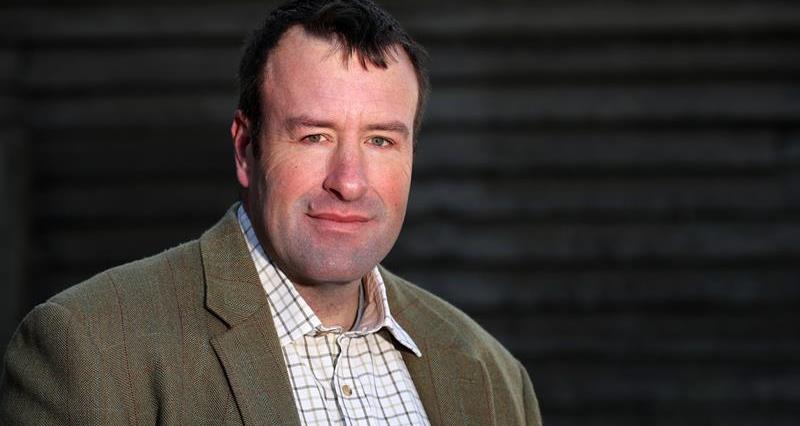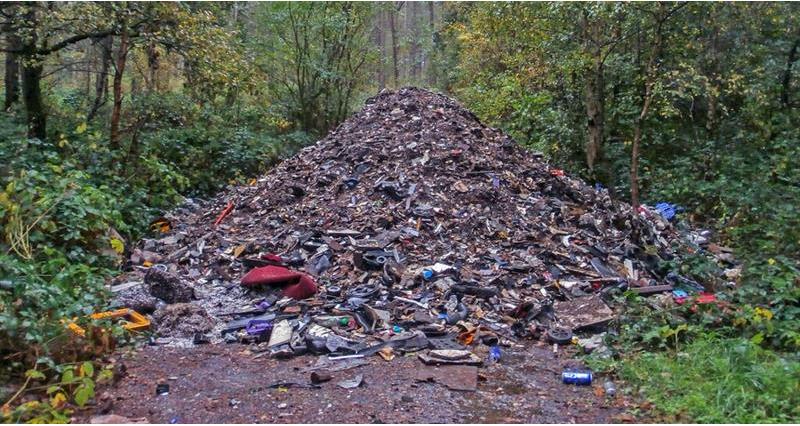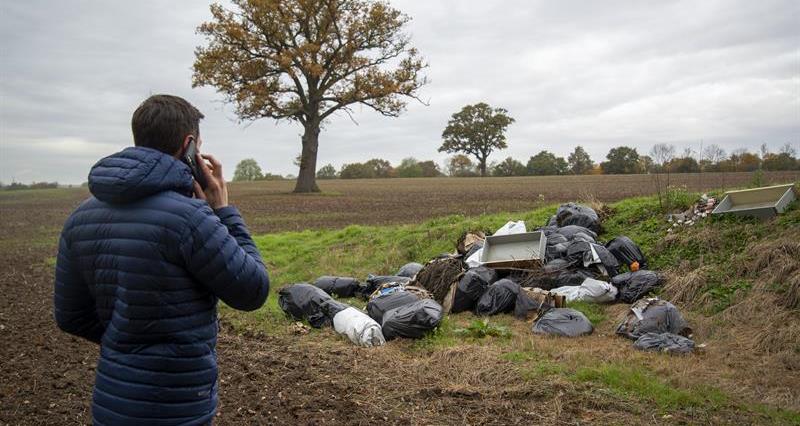Updated: 6 May
Background
Many local authorities took the decision to turn people away and close centres due to staffing shortages and concerns over social distancing. It is now estimated that 85% of HWRCs have closed.
The closure of HWRCs and the reduction in local authority waste collection services inevitably drove even greater criminality in the waste sector, including fly-tipping. The NFU saw anecdotal evidence of a surge in fly-tipping across the country. The NFU has concerns over the health and welfare of farmers as well as the cost and inconvenience of being responsible for clearing up the material, impacting them to a much greater degree.
Defra confirms plans for HWRCs to reopen
The NFU is pleased that the government has listened to its concerns on increased fly-tipping and are recommending to local authorities that HWRC’s can start re-opening.
Defra has published guidance encouraging councils to open sites to avoid the build-up of waste in homes and businesses and reduce the opportunity for fly-tipping - but only where social distancing can be maintained and the public and staff can be kept safe.
The guidance sets out how local authorities could manage access and the number of people who are able to be on site at any one time. It also recognises the importance of councils making independent assessments of which centres can be re-opened based on how much capacity they have and the practicalities of adhering to social distancing requirements at any one site.
This page outlines guidance for landowners who find themselves victims of fly-tipping as a result of outcomes caused by COVID-19. The information is built on existing NFU guidance which can be found on the NFU’s Rural Crime Hub as well as recently published government advice in light of COVID-19.
Updated work by the NFU and new guidance (5 May)
To help to reduce fly-tipping incidents, the NFU has been asking the government to encourage local authorities to provide waste facilities for residents, including the reopening of HWRC’s where appropriate. The NFU are pleased to see the new guidance published on 5 May on how recycling centres can be safely re-opened during the coronavirus outbreak.
The guidance states that:
There is no reason in law why HWRCs cannot be open and where possible, local authorities should seek to retain access to HWRC services for their residents to dispose of waste.
The decision to open a HWRC remains with the relevant local authority.
There are also legitimate reasons for some HWRCs to remain closed, safety being paramount including if insufficient staff are available to operate the site safely.
Further information can be found on Gov.UK here.
Updated NFU position (6 May)
NFU Deputy President Stuart Roberts said: “The NFU is pleased that government has listened to our concerns on increased fly-tipping and are recommending to local authorities that household waste and recycling centres can start re-opening if safe to do so.

“We’ve been hearing from many of our members that their fields are being bombarded with rubbish that’s being illegally dumped there, in part due to centres being closed as part of the COVID-19 lockdown measures. That rubbish is very costly and time consuming for farmers to remove, dangerous to human health and harmful to wildlife and livestock.
“As well as the safe opening of these centres, we will continue to campaign for tougher penalties for this type of crime. Currently 95% of fines given to offenders caught fly-tipping are lower than the cost of hiring a skip. This is a nonsense; people dumping waste illegally must see the fines as a punishment and fines must be made punitive, so they act as a proper deterrent to anyone tempted to fly-tip waste. The public should also be more responsible for their actions by ensuring that any rubbish is taken away by a registered carrier or run the risk of being prosecuted if any dumped waste is traced back to them.”
Combatting the rise in fly-tipping
The NFU has spoken with Defra to discuss the surge in fly-tipping and welcomed yesterday’s publication of Defra’s guidance for local authorities and other waste collectors on prioritising their waste collection services during the coronavirus pandemic. This is non-statutory guidance, but it recommends that local authorities are to maintain waste collection services as much as possible and it specifically encourages authorities to keep HWRCs open (Waste collection is a devolved policy. This guidance applies to English local authorities only).
The NFU urge all local authorities to take notice of Defra’s recently published guidance on prioritising waste collection services during the lockdown period. In addition, where it is safe and practical to do so, local authorities should re-open household waste and recycling centres.
We are not advocating that staff are put at risk, but as an example, we are aware Wigan Council has recently re-opened its sites to cars and small vans, with rules and restrictions in place.
And Veolia has produced a useful guide which is designed to enable visits to household waste and recycling centres which are essential to prevent injury, illness or harm to residents who have a problem with storing too much waste or have oils or other hazardous waste at home and for whom these are important facilities.
The NFU will continue to have regular discussions with local authorities and the wider waste sector. Defra have encouraged local authorities to take a pragmatic view of fly-tipping at this time. The NFU also understand that local authorities will be communicating with householders and encouraging them to hold onto waste if HWRCs are closed.
Click here to use the NFU's COVID-19 business impact service.
By using this form, farmers and growers can provide information on any business-critical issues they have encountered, or expect to encounter, arising from the COVID-19 outbreak. The NFU will log this information and use it in an anonymised format to flag the key issues agriculture and horticulture are facing to government on a daily basis. However, no personal data will be shared with the government. The service is for all farmers and growers across the UK.
Handling fly-tipped waste
Landowners are advised that where they have rubbish tipped onto their land it is to be treated no different to any other contaminated waste. Always exercise caution as some fly-tipped waste can be hazardous.
Do not open bags or drums and be aware that piles of soil may be contaminated or hide dangerous material. Try not to touch the waste, or use gloves if possible and always wash hands afterwards and where possible leave at least 72hrs before handling any waste materials.
This is in accordance to the Waste Industry Safety and Health Forum’s recently published guidance on COVID-19 and waste management activites.

Reporting fly-tipping
The NFU encourages landowners to always report fly-tipping, especially at this particular time when Defra are keen to obtain a better understanding of the scale of the current issue.
It is important to record as many details as possible about the waste and when you found it. If possible, take a photograph of the waste. Do not move the waste or remove any evidence from it until the authorities have been notified.
Local councils will not normally clear rubbish dumped on private land free of charge, but they may take a flexible approach at this. Local authorities also report their statistics to Defra. You can find details of your local authority here.
The Environment Agency investigates the larger (more than a tipper load), organised (linked to criminal business practices), or hazardous (waste over 75L which have the potential to damage the environment) incidents of illegal dumping on public land.
- Due to the impact of COVID-19, the EA has advised that the best method of contact is via email rather than the postal address, or phone.
- Email: enquiries@environment-agency.gov.uk
- Telephone: 03708 506 506 to speak to EA's National Customer Contact Centre.
- Environment incident hotline: 0800 80 70 60 (out of hours or in an emergency)
If landowners see fly-tipping in progress, remember that fly-tippers are doing something illegal – they are unlikely to welcome people observing them. Do not put yourself at risk if fly-tipping is in progress, call 999.
If members have any evidence of fly-tipping they can make NFU CallFirst aware on 0370 845 8458, the NFU can report information directly back to Defra. Members can also take part in Defra’s fly tipping app trial which the NFU is supporting.
Disposal of fly-tipping
There is unclear guidance at present under the COVID-19 restrictions as to where and how landowners can dispose of fly-tipped waste. This is something the NFU have raised with Defra who are urging local authorities to take a pragmatic approach.
However, it is worth reminding landowners that when arranging for disposal in ordinary circumstances, ensure that a registered waste carrier is used, as if it is dumped elsewhere, they could be held responsible and face an unlimited fine. Ensure that documentation is obtained which includes the details of the waste and who is taking it away and if landowners take the waste to a licenced waste site themselves, make sure they are registered as a waste carrier. If the waste is hazardous then make sure that it is being carried and disposed of by those licensed to deal with hazardous waste.
Always retain full details of clearance and disposal costs. Successful prosecution can mean that costs incurred for the removal of the waste can also be recovered.
Coronavirus: Updates and advice
This news hub on NFUonline will be updated regularly to keep you up to date with what you need to know and how to deal with the various issues raised by coronavirus. Visit the hub.
Looking for more advice? These pages contain more information related to COVID-19:
Government support for businesses Farm business concerns Public rights of way Environment and rural issues Wellbeing on farm Supply chain issues
